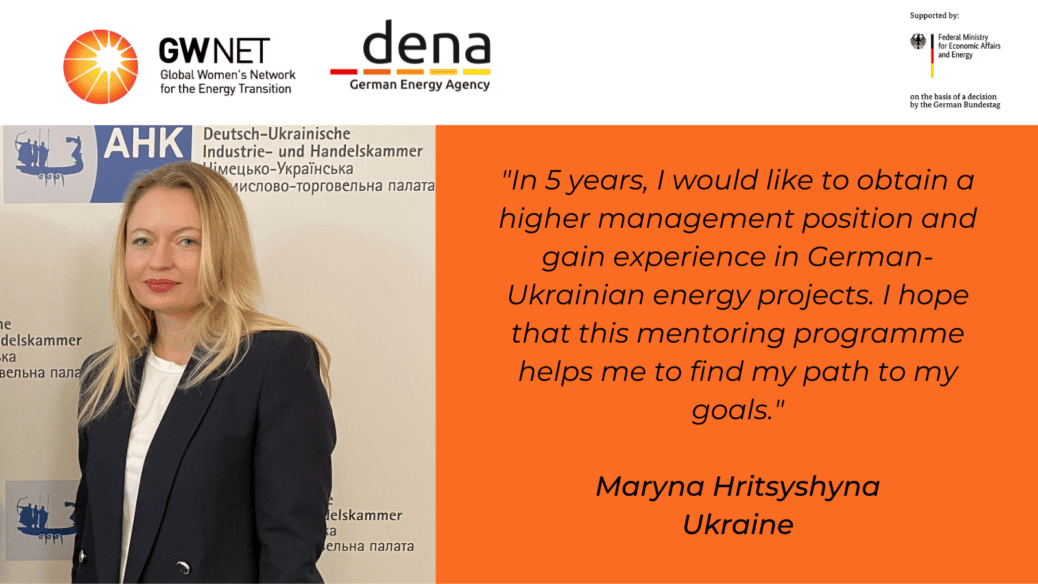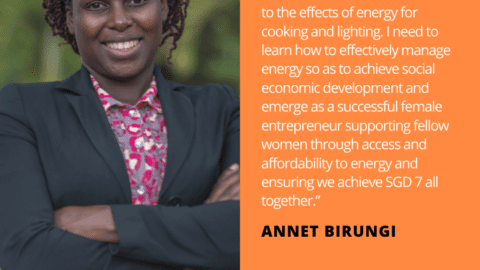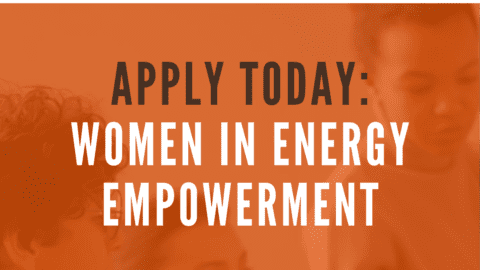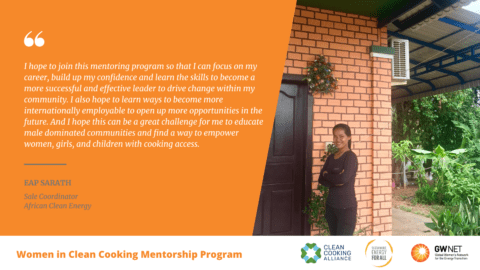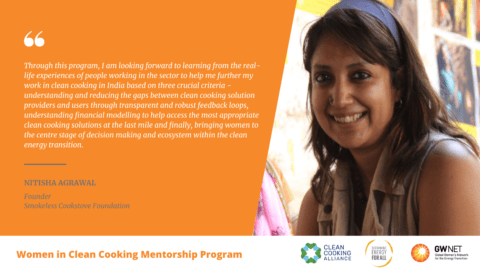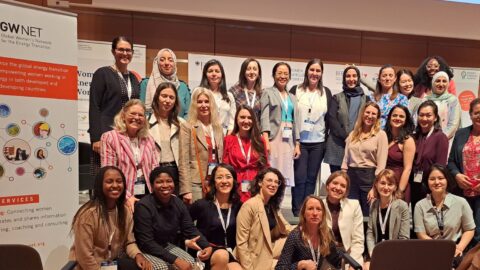GWNET brings you the 3rd instalment of the “Meet the Women in Energy Empowerment” series which celebrates the work and achievements of the women who are part of the Women in Energy Empowerment Mentoring Programme. This programme is made up of 30 mentee-mentor tandems, with mentees from Kazakhstan, Russia, Turkey, and Ukraine. Meet mentee, Maryna Hritsyshyna, Head of Energy at Sayenko Kharenko in Ukraine.
1) Tell us a little about yourself. What do you love most about what you do?
I am the head of energy practice at the Sayenko Kharenko law firm and have worked in the energy sector of Ukraine for the last 10 years. I specialise in renewable energy projects, energy markets and sustainability issues.
Most of all I enjoy the possibility to learn something new. Every year we have a lot of changes in the energy sector connected to regulations and technologies, for instance, energy storage systems and green hydrogen. The constant development and the opportunity to obtain new knowledge and experience in new topics makes my work interesting and exciting.
2) What were your goals when you started working in the energy sector? What are your goals today?
When I started to work in the energy sector almost 10 years ago, I was inspired by the possibility to participate in the construction of the largest wind farm – the Botiyevska wind farm (200 MW), and I wanted to gain this experience.
Currently, my goals are connected with getting a higher management position as well as experience in large energy projects. At the same time, I would like to improve my leadership skills in the energy sector.
3) What are the opportunities for sustainable energy in your country?
Ukraine has significant sustainable or renewable energy potential. According to the atlas of the energy potential of renewable energy sources of Ukraine, prepared by the Institute of Renewable Energy Sources, Ukraine’s renewable energy potential is 874 GW of installed capacity.
Pursuant to the analysis of the World Bank, Ukraine has approximately 251 GW total capacity of offshore wind that is more than the common capacity of Bulgaria, Romania and Turkey. Now, Ukraine has only 7,565.10 MW of renewables in the energy system and the share of renewables in the energy system is approximately 13.5%.
One of the main obstacles for the deployment of renewables in Ukraine is the lack of flexibility of energy systems and Ukraine does not have enough balancing capacities for further renewables deployment. Besides this, renewable generation does not participate in the market and the off-taker of renewables is a guaranteed buyer.
I had the following main challenges in the sector:
- Glass ceiling or absence of possibilities for career growth:
In order to obtain a management position, I worked a lot on the development of my soft skills. For the development of my negotiation skills, I became a certified business mediator under the German programme. I also participated as a speaker in international conferences and published my articles in different magazines, including Forbes Ukraine. - Lack of technical knowledge:
For work in the energy sector, it is important to understand the technical issues. I do not have technical education, but I can discuss some difficult technical topics with my colleagues. I also completed two courses regarding Electricity and Gas markets in the Florence School of Regulation that were very useful for understanding some technical issues.
I would like to obtain a higher management position and gain experience in German-Ukrainian energy projects. I hope that this mentoring programme helps me to find my path to my goals.
6) What advice would you give to women hoping to join the sustainable energy sector?
Never give up and believe in yourself.
Read more about GWNET’s mentoring programmes here.

